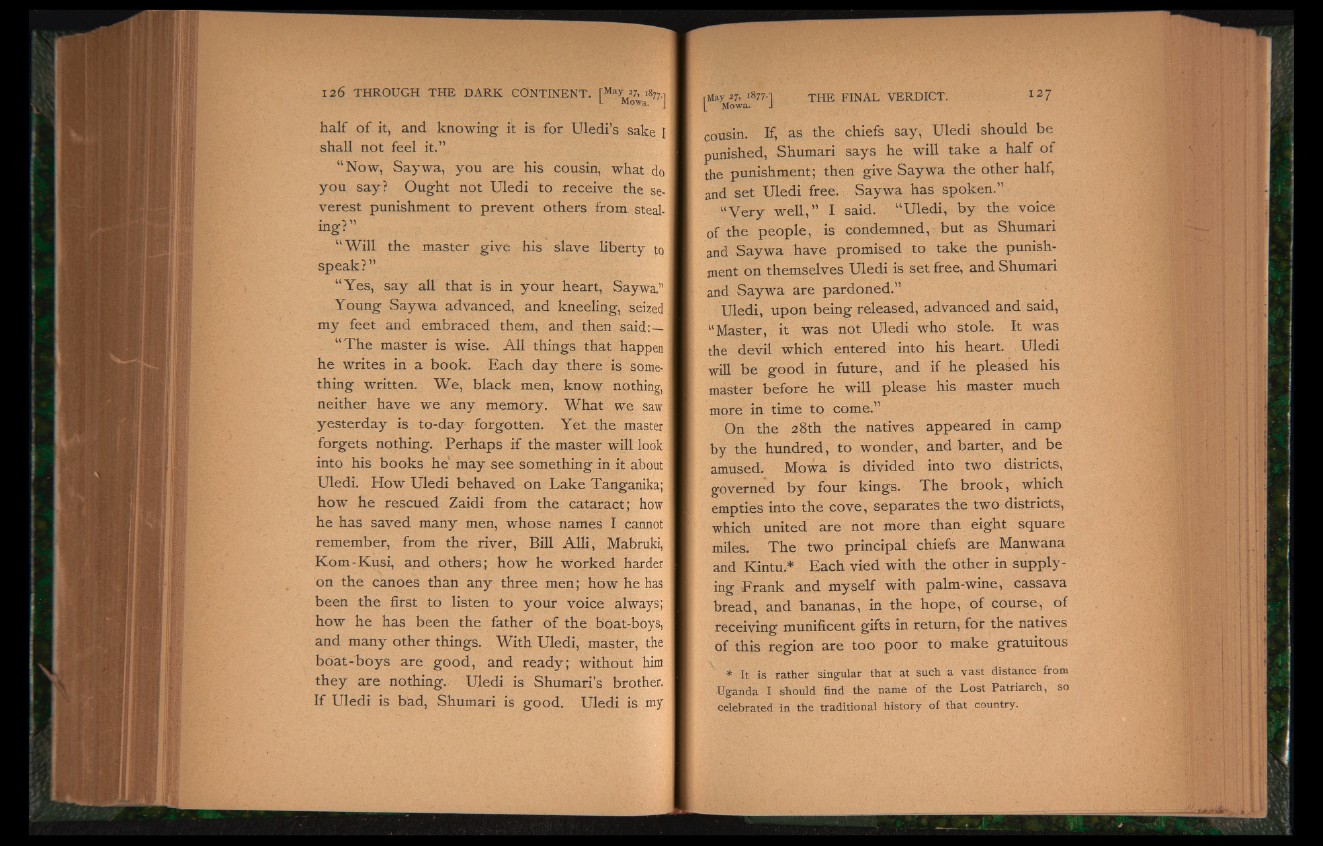
half of it, and knowing it is for Uledi’s sake I
shall not feel it.”
“Now, Saywa, you are his cousin, what do
you say? Ought not Uledi to receive the severest
punishment to prevent others from stealing?”
“Will the master give his slave liberty to
speak?”
“ Yes, say all that is in your heart, Saywa"
Young Saywa advanced, and kneeling, seized
my feet and embraced them, and then said:—
“ The master is wise. All things that happen
he writes in a book. Each day there is something
written. We, black men, know nothing,
neither have we any memory. What we saw
yesterday is to-day forgotten. Yet the master
forgets nothing. Perhaps if the master will look
into his books he may see something in it about
Uledi. How Uledi behaved on Lake Tanganika;
how he rescued Zaidi from the cataract; how
he has saved many men, whose names I cannot
remember, from the river, Bill Alii, Mabruki,
Kom-Kusi, and others; how he worked harder
on the canoes than any three men; how he has
been the first to listen to your voice always;
how he has been the father of the boat-boys,
and many other things. With Uledi, master, the
boat-boys are good, and ready; without him
they are nothing. Uledi is Shumari’s brother.
If Uledi is bad, Shumari is good. Uledi is my
[May 37. i877 T THE FINAL VERDICT.
Mowa. J
cousin. If, as the chiefs say, Uledi should be
punished, Shumari says he will take a half of
the punishment; then give Saywa the other half,
and set Uledi free. Saywa has spoken.”
“Very well,” I said. “Uledi, by the voice
of the people, is condemned, but as Shumari
and Saywa have promised to take the punishment
on themselves Uledi is set free, and Shumari
and Saywa are pardoned.”
Uledi, upon being released, advanced and said,
“Master, it was not Uledi who stole. It was
the devil which entered into his heart. Uledi
will be good in future, and if he pleased his
master before he will please his master much
more in time to come.”
On the 28th the natives appeared in camp
by the hundred, to wonder, and barter, and be
amused. Mowa is divided into two districts,
governed by four kings. The brook, which
empties into the cove, separates the two districts,
which united are not more than eight square
miles. The two principal chiefs are Manwana
and Kintu* Each vied with the other in supplying
Frank and myself with palm-wine, cassava
bread, and bananas, in the hope, of course, of
receiving munificent gifts in return, for the natives
of this region are too poor to make gratuitous
* It is rather singular that at such a vast distance from
Uganda I should find the name of the Lost Patriarch, so
celebrated in the traditional history of that country.